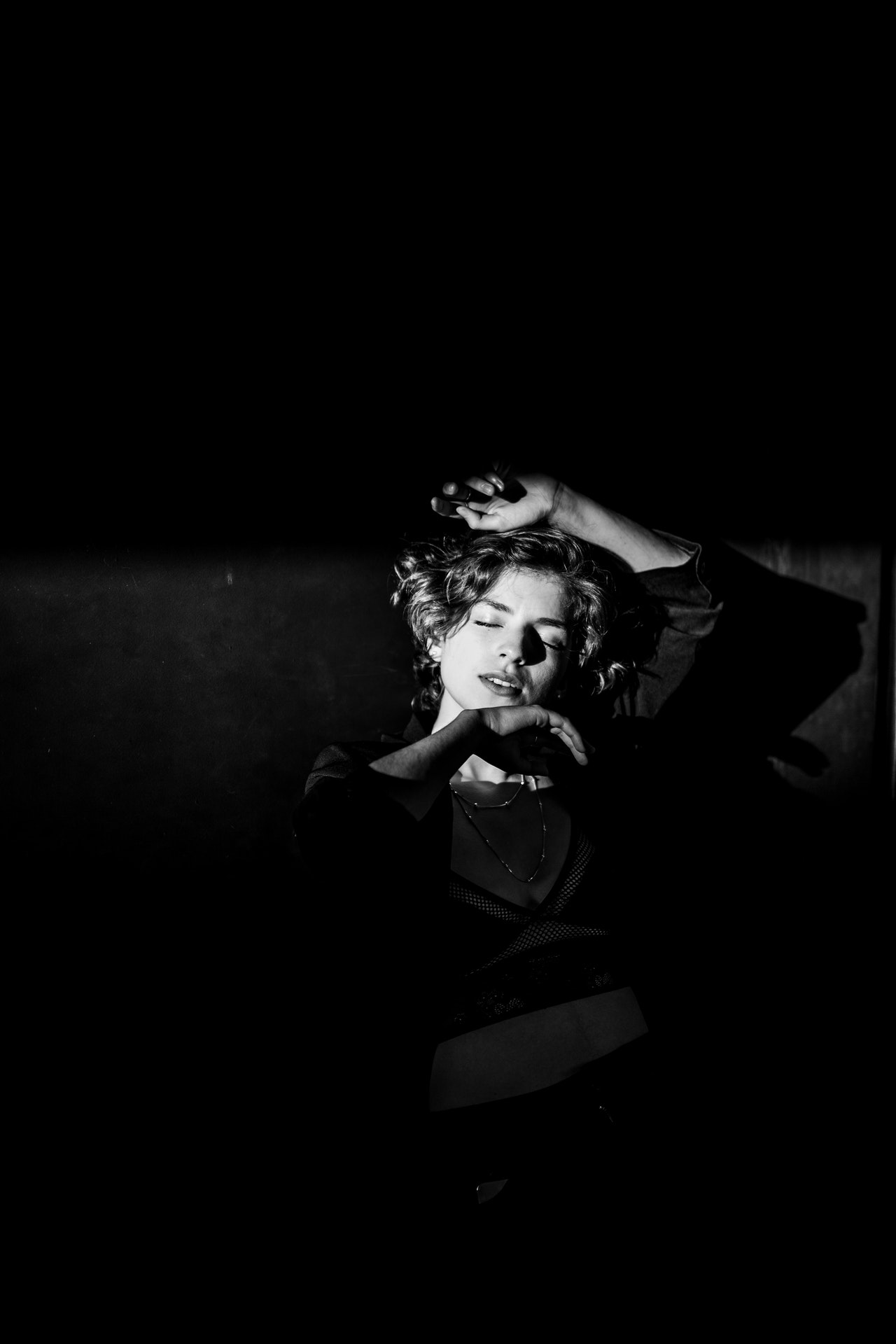Demystifying Life’s Biggest Mystery.
This was not the article I sat down to write.
I was all set to write about positive psychology and how it can change your life. But that is not what flowed out of my fingers onto the page. That is not what my heart obviously wanted to write about—what it wanted to be heard.
So here I am, writing something totally different (don’t worry, the positive psychology piece will come later).
Maybe it’s because of last year and all the loss and grief that it brought. Maybe it’s because of my own recent loss of yet another family member and how it changed me. Maybe it’s because of impermanence, which eventually swings us around to thinking about the inevitable that we try to avoid but eventually come face-to-face with at some point. Or maybe it’s because (due to these recent ruminations) of this book I read called How To Die: A Book About Being Alive by Ray Robertson.
Whatever the reason, the topic I was compelled to get out there in the world of the internet is a doozy and something that makes most of us uncomfortable. The word with a capital D—the one that author Terry Pratchett personifies with such character in his fictional Discworld series of books: death.
In the back of our minds, it’s something that we know will happen to us. Some day. At some point down the line, but who knows when? It’s all sort of hazy and ethereal and so unreal that it’s hard to wrap our heads around it, and therefore, hard to devote any real time thinking about it because it’s almost as if it doesn’t really exist, in a way.
I wanted to title this piece “All The Pretty Flowers,” which came from that book I mentioned above by Ray Robertson. The words jumped out at me off the page. He was mentioning a memory of being a kid and riding his bike through a cemetery with some friends and seeing all the pretty flowers on top of people’s graves—what a juxtaposition.
Beautiful vibrant flowers in a somber, quiet place of…well, the total opposite of beautiful and vibrant and alive. Life and death coexist, side by side. It is always happening to us, we just don’t stop to give it any thought (probably because we’re too busy living). The moment we are born, we also start to die. Impermanence rears its head once more.
I have been somewhat…lucky (is that the right word? Maybe it isn’t. Maybe I have actually been unlucky). The only dead person I have ever seen in my 41 years was my mom, moments after she’d passed away, when my dad and I had arrived back at the palliative care centre just that little bit too late.
Despite having lost other family members over the years, I’d never attended any funerals or wakes or anything to do with death at all. It was an odd and surreal experience. Not just because she was my mom—or rather, probably because she wasn’t my mom anymore. That fact was immediately apparent. That whatever my mom had been before, she suddenly was no longer.
My mom, the person I had known as her, was gone despite her physical body still being there in the room with us (my dad, me, and the palliative care staff member). It’s such a strange thing—that realization. And I had to wonder—gone where?
Uncomfortable being in her presence, my dad and I hurried out of the room as quickly as possible. After all, what else was there to say and do? (Besides a kiss on the forehead and a final goodbye and “love you, mom.”) But five years on, I wonder…should we have stayed a bit? Lingered there with her in the room for one last time?
Maybe had I experienced seeing more death prior to that experience, it would have been easier. Or maybe it would have been just the same, just as difficult. Who can say? I can’t.
I am not religious, so I don’t have the comfort or crutch of belief that my mom (and everyone else I know who have passed) is somewhere in some heavenly realm. I recently shared an image on my social media, (or re-shared actually; I first shared it five years ago after my mom died) and I found it comforting as an atheist/agnostic. The image was titled: “You want a physicist to speak at your funeral.” It was attributed to an Aaron Freeman. It goes on:
“You want the physicist to talk to your grieving family about the conservation of energy, so they will understand that your energy has not died. You want the physicist to remind your sobbing mother about the first law of thermodynamics; that no energy gets created in the universe, and none is destroyed.
You want your mother to know that all your energy, every vibration, every Btu of heat, every wave of every particle that was her beloved child remains with her in this world.
You want the physicist to tell your weeping father that amid energies of the cosmos, you gave as good as you got.
And, at one point, you’d hope that the physicist would step down from the pulpit and walk to your brokenhearted spouse there in the pew and tell him that all the photons that ever bounced off your face, all the particles whose paths were interrupted by your smile, by the touch of your hair, hundreds of trillions of particles, have raced off like children, their ways forever changed by you. And as your widow rocks in the arms of a loving family, may the physicist let her know that all the photons that bounced from you were gathered in the particle detectors that are her eyes, that those photons created within her constellations of electromagnetically charged neurons whose energy will go on forever.
And the physicist will remind the congregation of how much of all our energy is given off as heat. There may be a few fanning themselves with their programs as he says it. And he will tell them that the warmth that flowed through you in life is still here, still part of all that we are, even as we who mourn continue the heat of our own lives.
And you’ll want the physicist to explain to those who loved you that they need not have faith; indeed, they should not have faith. Let them know that they can measure, that scientists have measured precisely the conservation of energy and found it accurate, verifiable and consistent across space and time.
You can hope your family will examine the evidence and satisfy themselves that the science is sound and that they’ll be comforted to know your energy’s still around. According to the law of the conservation of energy, not a bit of you is gone; you’re just less orderly.”
It is a comforting thought to think that you still exist—but you’re just less orderly.
I have read stories of a dead body weighing a few grams lighter after than it had moments before when they were still alive, and some believe that to be evidence of the soul that has left the corporeal form. It’s a lovely thought and I wish it to be true, but I have no idea if that is just wishful thinking on the part of the researchers. It would support the physicist above.
Something else that has helped me come to terms (though I still am trying to come to terms; I think it’s probably a never-ending process, unless you’re in the “field”) with this heavy and morbid (though it shouldn’t be) subject matter are three books written by a young and progressive mortician, Caitlin Doughty.
The first book is called Smoke Gets In Your Eyes: And Other Lessons from the Crematory, about her foray into the field of death when she got her first job at a funeral home.
The second is From Here to Eternity: Traveling the World to Find the Good Death, where she discusses how different cultures around the world (besides our Westernized culture with our closed-off, averted eyes, uncomfortable silence, view of death) deal with and celebrate this part of, well, life.
Her most recent book is: Will My Cat Eat My Eyeballs?: Big Questions from Tiny Mortals About Death and, like her other two books it is, no pun intended, eye-opening.
Her books were fascinating and made me feel just a smidge better, as it demystified such a taboo subject and made it seem, well, like what it is: just a regular part of life that we all experience (and go through).
Doughty is also a champion and founder of an organization called “The Order of the Good Death” (there’s a website where you can sign up to be a member), and she’s on a mission to make death less of a scary subject and educate people about it—a worthy cause! And I guess, as a member of “The Order,” my writing about the subject here is my way of supporting the cause of education and enlightenment on this avoided and hush-hush matter.
I wonder if we’ll ever be able to shed light on this, life’s biggest unknown for all of us. But, at the same time, I wonder if we even should if we could, or if it is something that should remain a mystery.
~









Read 20 comments and reply